Romania is the only state to have allocated resources from Structural Funds dedicated to the riparian areas of the Danube River, and there have been several axes through the Regional Operational Programme (POR) that refer both to the infrastructure development and to the culture and tourism supply, Victor Negrescu, Minister-delegate for European Affairs stated in an interview granted to AGERPRES.
In the official's vision, other states that receive Structural Funds haven't made this decision, Romania planning in this context to invite partner states to do the same "because after all, these cohesion funds, these Structural Funds can also have this objective in order to regionally support cooperation."
On the other hand, the minister also spoke about the fact that Bucharest could become a Danube port with the help of European funds, and so would have much to gain from the tourist and commercial point of view. He showed that the Romanian authorities can convince the European Commission to fund this project from European money. At the same time, this would mean capitalizing on a huge tourist potential, as many tourists who are cruising on the Danube have to stop in Giurgiu to visit the capital.
Romania will take over as of 1 November the presidency of the European Union Strategy for the Danube Region (EUSDR) for one year, and as such it will propose that additional financial resources be allocated for the development of this region's potential, Negrescu added. The minister-delegate for European Affairs also said that Romania is prepared to take over the presidency of the Council of the European Union as of 1 January 2019 and specified he is not anxious as our country has the resources to matter increasingly more at European level.
As regards his being on certain lists of possible ministers to be reshuffled, Negrescu showed he does not hold that piece of information but in his opinion, each person who temporarily holds a position must do his/her job the best way he/she can.
AGERPRES: What responsibilities does Romania assume once it takes over the presidency of the European Union Strategy for the Danube Region (EUSDR) on 1 November?
Victor Negrescu: This is an extremely important element for our country, because we can practically give a new direction to this strategy. In fact, our main objective for this presidency is to reinvigorate this strategy by promoting a series of ideas, extremely precise projects.
As a matter of fact, it is the second time Romania is holding the presidency of this strategy and when we ran last year we set out to take advantage of the opportunity provided by our presidency of the Council of the EU so as to also bring to the forefront of the European agenda the EU Strategy for the Danube Region. Practically, starting from this new statute that Romania will have, our country intends, first of all, to talk very much about connectivity. I am referring here that we talk about the potential this region has and the way we can improve connectivity in the Danube region. Using the Danube as a navigable means but also using the existing potential in the region in terms of attracting additional European financial resources.
Another objective in completing this revival idea is the operationalisation of the technical, administrative, secretariat side. In fact, Romania has applied at the beginning of the year, alongside Austria, for the management of this strategy, and, ahead of other competing countries, Romania and Austria have won the opportunity to hold the technical secretariat for three years, which will allow us to use European resources to manage this European structure.
In fact, in this team, together with the Austrian partners, Romania's role will be to manage the financial resources and activity in relation to the communication side of the strategy. This is an essential thing, because we believe it is important to communicate more to potential partners and beneficiaries the opportunities offered by this form of collaboration.
In addition to connectivity and revitalization, and the administrative part, we have two other equally important goals. An objective relates to the part of the exchange of experience, we are very keen on this because we believe that there are different experiences in the effective management of the Danube, both as regards the environment and the transport side, and we would like to improve this exchange of experience to create as many synergies as possible. Including synergies in the legal framework for regulating the Danube River or activities on the Danube. In this logic, Romania really has added value that it brings to this exchange of experience. Our country is the only country that has allocated resources from the Structural Funds to the European Union Strategy for the Danube Region, which is a positive thing.
Last but not least, the fourth important element for us refers to clusters. That is, we want to take advantage of the potential offered by the large number of clusters around the Danube Region to talk about this form of collaboration that involves collaboration between local authorities, associative actors, the business environment, the trade union environment. There is even a very great effervescence, especially in Romania, around these clusters, which are able to attract very, very many European funds.
AGERPRES: What does the Danube bring for us, as a country?
Victor Negrescu: The Danube offers many opportunities. First, it is a navigable canal. As far as transport is concerned, the Danube has a potentiality still unfulfilled. Unfortunately, some regulations still do not allow us to use the full potential of the Danube. Moreover, perhaps not all states in this region have the same interests in using this potential in terms of transport and that is why Romania has made important efforts to support all states in order to make the Danube a true navigable canal that can be used for transport, including freight transport. In this sense, we actually work with the Bulgarian partners to support them in this respect, because this transport is also an alternative to the traditional means of transport.
Moreover, projects using the Danube as a central element can be voted on. I would mention here that there are funding opportunities through the Danube Program, but there are subsequent funding opportunities through the funds available in Brussels that can be accessed as a result of projects or initiatives around the Danube Region. Thus, I would mention an important project called Danubius Ri, one of the most important European projects in the field of environmental and biodiversity research. It is a project which Romania participates in, which we are very proud of, and it is a vivid proof of the fact that we can also attract European resources for projects that make explicit reference to the Danube and its potential.
Last but not least, I would mention the financing infrastructure for the Danube Delta, a means of financing, the ITI [Integrated Territorial Investments - ed.n.] specifically created for this area of Romania. This has been possible precisely in the light of the distinctive nature of the Danube Delta region and can be further exploited and used and, why not, in other member states as well.
AGERPRES: What examples can we follow from the Danube countries that have done more in this respect?
Victor Negrescu: First of all, we must say that all of Romania is included in the European Union Strategy for the Danube Region. This is extremely important because, basically, when we launched this Strategy, initiated by Romania and Austria, we thought from the start that there is a huge potential throughout Romania to use the resources of the Danube.
Starting from this, indeed, we seek to see successful models, and hence, we will greatly stimulate exchanges of experience because they truly exist. In particular, one should see here the positive example given by Vienna, how it profits from the Danube for tourism promotion, but also for the commercial transport and development of clusters around the Danube.
Austria and Germany have succeeded in highly developing port infrastructure. In this sense, we should perhaps take over these positive examples to develop our own port infrastructure and, in this logic, Giurgiu municipality has accessed financial resources available directly at Brussels in partnership with the Austrian partners and, with those funds, will build a port infrastructure in Giurgiu. I think that example should be replicate in other parts of the country. So, there are things that are happening. Unfortunately, we are not talking enough about these things. That is why our presidency of the European Union Strategy for the Danube Region can allow us to reinvigorate this strategy, to give more visibility to this strategy, to show the potential offered by this strategy and to bring as many stakeholders as possible, participants, partners around the Danube and the potential offered by the Danube as a whole.
AGERPRES: Why do you think there is not enough talk about this topic?
Victor Negrescu: The strategy was officially launched in 2011 and there have been some moments when there was a great deal of visibility on this strategy. Things have evolved depending on the countries that held the presidency, and perhaps one thing that has diminished interest in the Strategy was the fact that macro-regional strategies do not, unfortunately, benefit from their own financial resources.
The amount allocated is a specific one, of just over 200 million euro, and this may have reduced the attractiveness also because those financial resources specifically support software projects, conferences, meetings, information campaigns, and have supported less the substantial projects, especially those relating to infrastructure.
That is why Romania sets out, during the EUSDR presidency, to think a few regional initiatives that can be put on the European agenda, taking advantage of the fact that we will hold the presidency of the Council of the European Union. That is why we aim to convince the European partners that in the future funding lines managed directly by Brussels - I refer here to Horizon Europe, the future Erasmus programme or transport programmes - to introduce a reference to the need to support regional initiatives coming from these macro-regional structures recognized by Brussels.
So, more specifically, if a working group is developed, funded by our macro-regional programme, which thinks about the development of port infrastructure and the states gather together, come up with ideas, it would be good for the projects that result from the working group to benefit from the funds provided from the funding available in Brussels. Either those evoked or those managed by the European Investment Bank. So it is important to offer continuity to these ideas that already exist but which need to materialize in concrete and larger projects.
AGERPRES: At the moment, does the initiative have 200 million euro at its disposal?
Victor Negrescu: Approximately 270 million euro. We are talking about an entire European budget. So the sum is small related to every year. But what is important to mention is that other macro-regional policies do not benefit from additional resources, in principle. How is money allocated for macro-regional policies, but also for crossborder or transnational programmes? The European budget is negotiated and each state agrees to reallocate an amount from the country allocated budget to these forms of regional cooperation. So we, at the level of the Danube Region, have agreed to share this contribution together. Certainly, it may be agreed upon that the amounts be higher in the future. It is a consensus and it represents the average of the other macro-regional policies.
I want you to know that this macro-regional policy is the second largest macro-regional strategy at EU level. We also have member states and non-member states, which gives the situation some particularity, including the Republic of Moldova, which are part of this macro-regional strategy. This presents a very great opportunity in terms of interconnecting member countries with non-member countries, for example the countries of the Western Balkans, which we are talking about very much at this time.
As I said earlier, taking over the presidency of the European Union Strategy for the Danube Region is a great opportunity for Romania. We relied a great deal on this opportunity when we decided to run last year. There were competitors, but the member states chose Romania and we are glad. We believe that we can make an active contribution in such a way that this macro-regional strategy benefits from the necessary support.
AGERPRES: Do you have an estimate of how much money would Romania need to bring to the end of the projects you are thinking of?
Victor Negrescu: First of all, we want to create synergy between the projects supported by regional cooperation and the projects that the EU funds directly. It is important to have continuity with the initiatives already taken. We are talking about feasible and viable projects, and if this synergy, defined and guaranteed by Brussels, is created, those infrastructure projects that will bring added value will surely ensue.
These regional projects, not just in Romania, will certainly generate a surplus to the budgets of the member states and then a plus to the European budget. Things connect and highlight what Romania has evoked very often in recent times, the need for continuity between the East and the West, perhaps even between the North and the South. The idea of continuity was evoked at the Summit of the Three Seas and it is important for us to talk more and more about these issues. In fact, during our Presidency of the Council of the European Union we will talk about this aspect of connectivity.
AGERPRES: You have evoked the example of Vienna. Do you think it would be beneficial for Bucharest to become a port on the Danube?
Victor Negrescu: I think this is a long-standing project for Romanian decision makers. Obviously, such a project should, first of all, be evaluated. It needs to be viable, consistent, to involve many actors, both in the public and private environments so as to assure us that such an initiative is viable in the medium and long term. From the information I have, I know that the European institutions were interested in this project in the past and, obviously, to the extent that Romania will come up with a detailed presentation, we can certainly identify solutions, perhaps even financing, by using the resources of the European Strategic Investment Fund, included. Such projects are extremely important. It is equally important to explain and materialize them.
From my knowledge, I know that a good part of the infrastructure that was begun can still be used, which would mean that such a project would not start from scratch, it would already start with a certain degree of implementation.
AGERPRES: How important would that be for Bucharest?
Victor Negrescu: The capitals connected to the Danube have profited a great deal. We look at Vienna, we look at Budapest - extremely eloquent examples of what the added value brought by the Danube to the tourist offer, the commercial exchanges means... All of these things are natural as soon as a big city is connected to the Danube. I'd simply bring to mind here the guided tours on the Danube. They are currently more and more developed and as regards Romania, the tours still stop at Giurgiu, and then the tourists come to visit Bucharest. Had there been a direct connection, those tourists would certainly come directly to Bucharest and could benefit much more from the tourist offer of the Romanian capital city.
We already have potential on the Danube and I'm talking about the fact that the cities are connected. We have smaller towns, such as Giurgiu, and we have bigger towns, such as Galati, and why cannot it benefit from this context? Perhaps even Tulcea, because there is a connection with the Danube Delta there as well. I think we should use this chain of Danube connected communities and create around them what I have just said earlier, as a priority to us, the idea of development clusters, using the Danube's potential.
I know that these things I bring to mind could seem particularly technical, red-tape, but other countries have already accomplished them. Starting from such ideas, things can be achieved that people can see in their daily lives.
AGERPRES: You have recently been to see the Romanian ports at the Danube. How do they look like? As far as I know, they look awful. Why is it that so far nothing has been done?
Victor Negrescu: First of all, those who have the responsibility are those who should explain these elements. Ever since we started to focus more on this strategy, we have had several talks with the ministries in charge, be they the Transport Ministry, the Development Ministry or other institutions involved. Efforts have intensified to access the available European funds. I know that part of these structures have already received resources to improve their activity.
Hopefully this effort will continue in the next period. I have as example the Giurgiu municipality that has accessed European funds to build an intermodal port. I believe we should talk about these positive examples, too, with funds directly accessed in Brussels. There, things are progressing and I know that other localities do the same to improve the tourist offer around the Danube, to refurbish the esplanades and other matters of this kind. Lately, the Tulcea municipality and the Tulcea County Council have promoted the initiative for the modernization of the esplanade. So, things are happening. They should happen faster. Certainly, this is true for many things in Romania and I hope that many things will be improved.
There are countries that are capitalising on the potential more and countries that perhaps do not make enough of it. Romania is aware today more than ever of this potential and by taking over this presidency, it wants to reinvigorate the interest for using this potential I have largely described in our talk. In order to do that, we have set out to organise more than 50 actions targeting our country's presidency of the EUSDR. All ministries are in.
You must know that at the level of this region, there are priority areas, there are sectoral working groups - Environment, Transports, Culture and that come together, come with initiatives that support this idea of connectivity and synergy among states. Surely, by organizing these meetings in Bucharest and in other places, too, we will be able to give a plus to the initiatives in the field. I was speaking earlier about the clusters' potential. It is enough to browse the web and you'll see that tens of clusters exist that have lately developed in Romania, that use the Danube's potential, access European money and make a special effort to develop all kinds of innovative solutions to use the Danube's potential.
AGERPRES: At the Gov't level, what is the importance of this initiative? How is it perceived? I mean, is enough priority granted to it? If you're saying that so far it has been somewhat overshadowed, how will it be from now on?
Victor Negrescu: I am positive that this presidency of the EUSDR will allow us to generate interest from all of the institutional actors. This is not about the gov't. The political actors do back the initiatives that refer to the Danube and I think that no matter their political colour, everybody believes it is important to use this potential in a very efficient way. It is yet important that we take the following steps too.
That is why we have placed the EU Strategy for the Danube Region as a priority also for our presidency of the Council of the EU, because we want to go further and this next step particularly refers to the need to be able to access additional financial resources so as to use this potential. Like I said, Romania is the only state that has allocated from the Structural Funds, resources dedicated to the Danube's riparian areas. Through the Regional Operational Programme, there have been several axes that also relate to the infrastructure development and to the culture and tourist offer, and this makes Romania an example for other member states.
Sadly, other states receiving structural funds did not make this decision, which is why we'd like to invite the partner states to do the same because, after all, these cohesion funds, these structural funds could have this target, too to support regional cooperation. Besides, if one looks at the cross-border or cross-national programmes, depending on how one refers to them, one can see that Romania is an important beneficiary of these resources, even in the south area of the country, and not only, and in this sense financing was granted for the erection of the basic infrastructure, road infrastructure, included, of connection and of other fixed assets and this is a good thing. We must access more funds in this sense so that we create a development area around the Danube. A development area that obviously must not refer only to the cities that are already benefiting from the Danube, but to the Danube's path entirely.
AGERPRES: In the project of Romania's new energy strategy, recently launched in public debate, the idea of a new hydro power plant on the Danube is emerging. has there been any talk on this project recently?
Victor Negrescu: There hasn't been any recent discussion that I was informed about. So, let us ask first the colleagues with the Energy Ministry. There are a lot of projects. We listed these initiatives or projects, among which the ones you have brought to mind. Naturally, we deal with the coordination part of the relation with the partners in the region and this means of European cooperation, and we wish to start from this list, obviously, to see what to do next.
Surely, like you said before, potential exists and there already are projects, older or newer. They must benefit from financing. The fact that the macro-regional Strategy does not benefit from dedicated resources caps this potential. That is why we want to make this connection, this synergy with the available Brussels' funds.
AGERPRES: In reference to the government reshuffle, your name pops up on certain lists that circulate in the public space. Could you comment on this information?
Victor Negrescu: We have no list. Tomorrow [19 October, ed. n.] we shall take over the presidency of the European Union Strategy for the Danube Region, in Bulgaria. We have a lot of work to do to be ready for the presidency of the EU Council. These are important tasks. Each person who ephemerally fills a position must do their job the best way they can. This has been my priority all the time. And it will further be my priority to carry out my activity the best way I can by observing the ruling programme, too, and yet by observing the objectives Romania has got and in particular these two objectives already brought to mind are national interest topics which I manage proudly and with the wish to demonstrate that the Government of Romania is capable of dealing with challenges of such magnitude.
AGERPRES: Do you believe a continuity must exist at the level of the ministry's leadership in this period, when we prepare ourselves to take over the presidency of the EU Council and the presidency of the EUSDR?
Victor Negrescu: I wish to say we are on schedule with all these elements. Like I said, we are taking over the EUSDR presidency, we have a list of documents, we have very clearly planned activities, we have set objectives, approved by the gov't.
For the presidency of the EU Council, all our foreign partners who have visited Romania have brought to mind the important preparedness level of Romania and the spirited programme we table. I am positive that we can accomplish what we have set out to do and that after all, those who trusted us will see at the end of our activity that we did our job. Obviously, all of these things are not on one person's shoulders. The most important thing one can do as a dignitary is make sure that things are well organized so that they run smoothly regardless of the one who is temporarily holding the office.
AGERPRES: Is Romania ready at this time to take over the Presidency of the Council of the European Union?
Victor Negrescu: Romania is ready to take over the Presidency of the Council of the European Union. I'm certain we are on schedule with all the elements regarding the organization, both politically and logistically. We recently had the visit of the Secretary General of the Council of the European Union who in his talks with the members of the Cabinet and with the other Romanian dignitaries brought to mind that we have made significant efforts so as to be ready for this moment. He found that there is a very good level of preparedness as regards the knowledge of the files and the involvement regarding these negotiations. This was also brought to mind by the representatives of the Council's General Secretariat, who have also been in Romania lately, in Sibiu included, to see the preparation level of the Summit that is due there next spring.
These things bring me joy because they demonstrate that work can bring results and I believe that any office holder must understand they have a huge responsibility and that to represent Romania in its relations with our European partners and the accomplishment of these missions is a responsibility I personally am very proud that I could have them and I'm sure that we can successfully fulfill these objectives for Romania.
AGERPRES: Are you nervous?
Victor Negrescu: One has no reason to be nervous in politics or this administrative activity. I have convictions and my conviction is connected to the fact that Romania is a state that can count more and more at European level, a state that can have a substantial contribution to the European decision-making process. I am positive that our country has very well prepared people in this field, people who know what they have to do.
I'm positive that Romania's presidency of the Council of the European Union will be successful because we know our mission, because we will respect what the meaning of this responsibility which entails this role of mediator we often talk about and I'm sure that for six months, Romania and the Romanians, in particular, will show that our country has understood what belonging to the European Union involves and that after all, we can have a positive contribution to what the construction of the European Union's future means.
Minister-delegate Negrescu: Romania, only state to allocate resources from Structural Funds to Danube's riparian areas
Explorează subiectul
Articole Similare
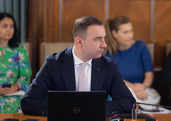
14
EnerMin Ivan:Final Investment Decision for Doicesti SMR marks transition from analysis implementation phase
14
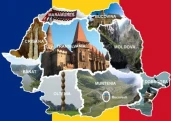
8
ANAT vice-president: Romanian tourism is in technical recession
8
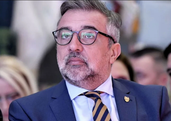
7
ECA's Romascanu: Romania has a relatively comprehensive RRF anti-fraud framework
7

8
Bucharest Stock Exchange closes higher in Thursday's trading session
8
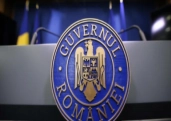
7
Gov't spokesperson admits it's a difficult period for citizens, but essential for budget balance
7

9
Protest in Timisoara against postponement of Constitutional Court's decision regarding magistrates' pensions
9

6
The EP's view on cyberbullying and how realistic Romanian MEPs consider the proposed solutions
6
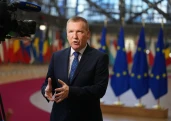
5
USR MPs call on European Justice Commissioner for more rigorous Rule of Law assessment
5

10
DefMin Miruta: National defense industry must be part of international production chains
10
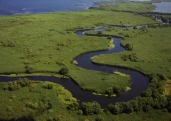
10
EBRD sells Danube Logistics, operator of Giurgiulesti port in Republic of Moldova, to Constanta Port
10
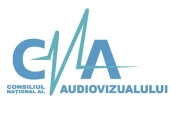
30
National Audiovisual Council's decisions - confirmed by courts in proportion of 92% in last 10 years (institution's vice-president)
30
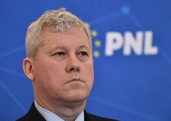
7
Romanian-Canadian cooperation in home affairs on agenda of talks between Minister Predoiu and Ambassador Buchan
7
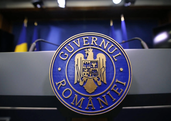
6
Government temporarily suspends contracting procedure for projects financed by 2021-2027 Cohesion Policy
6

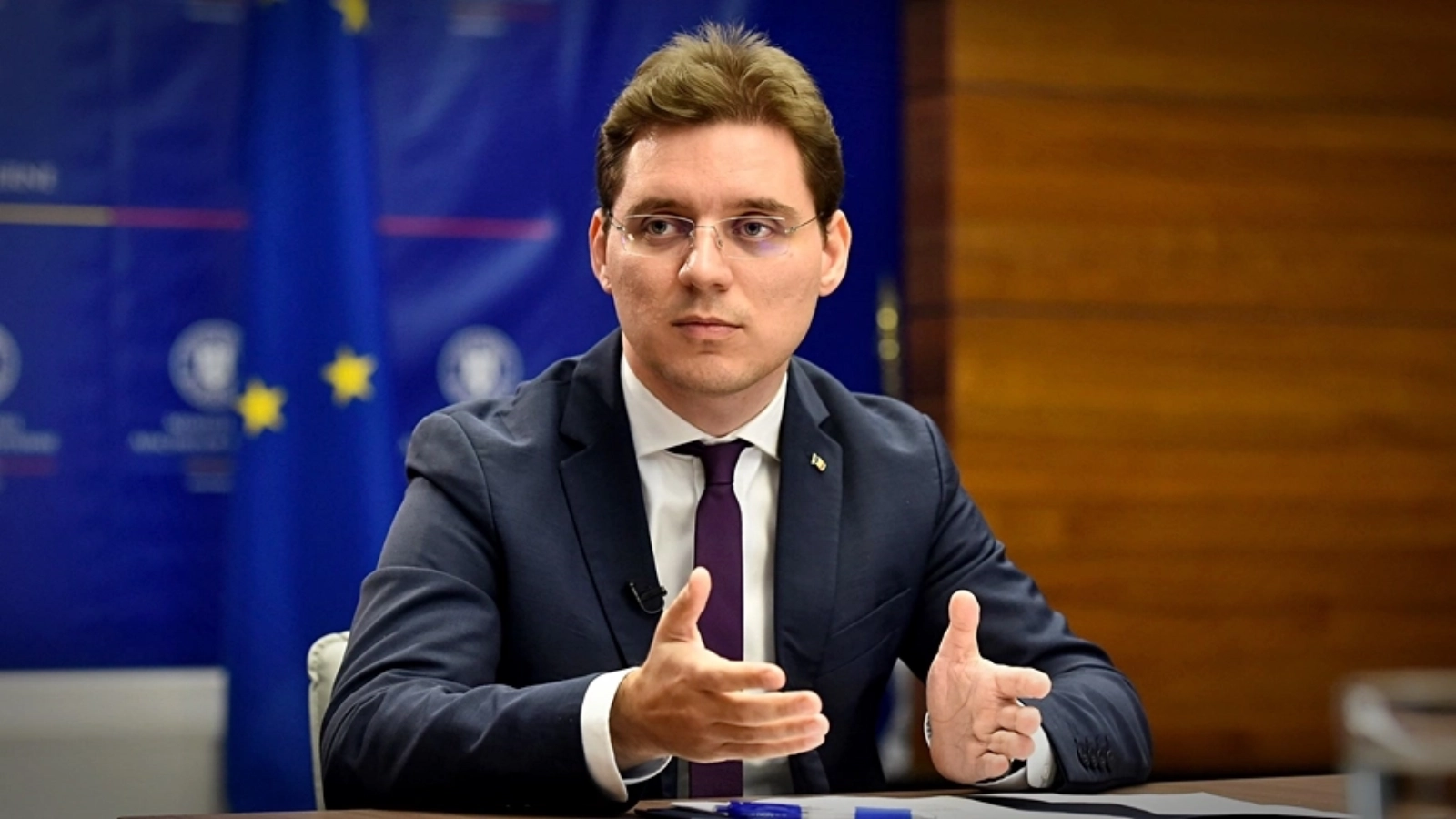


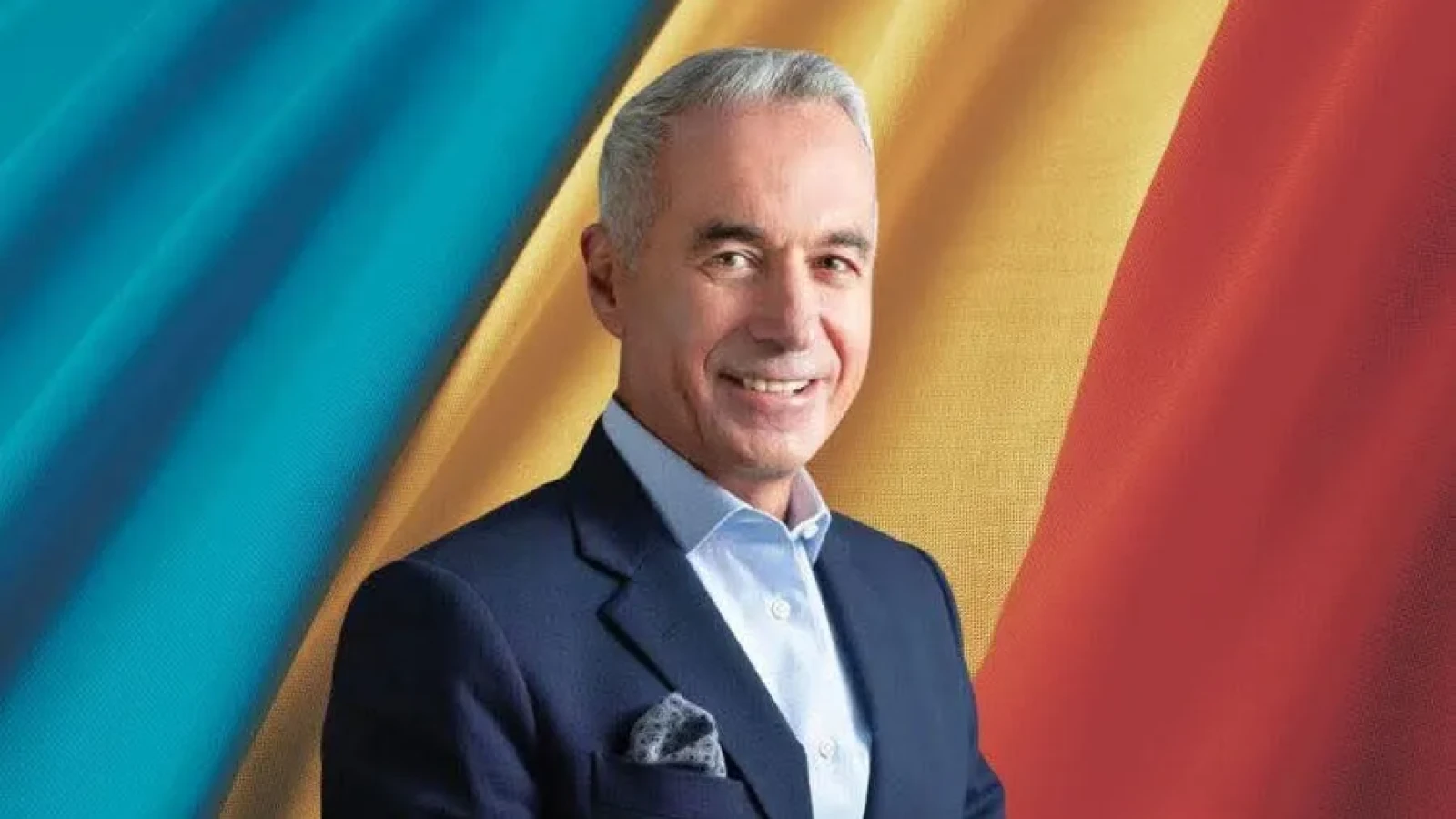



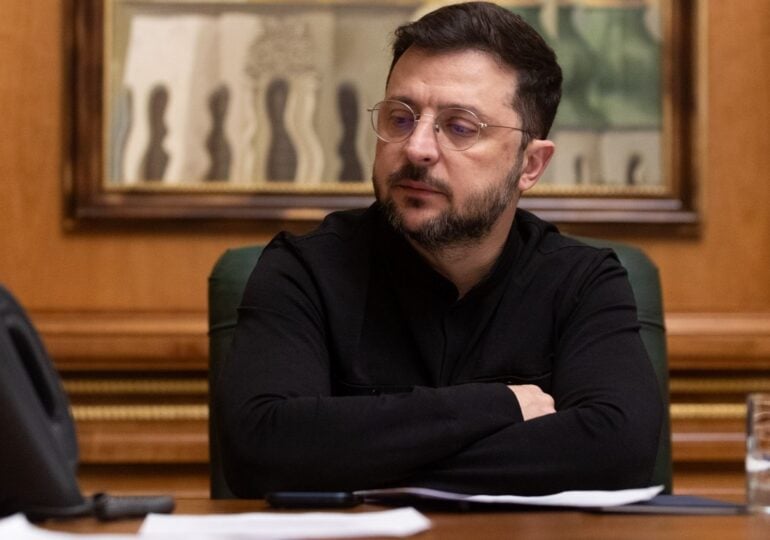

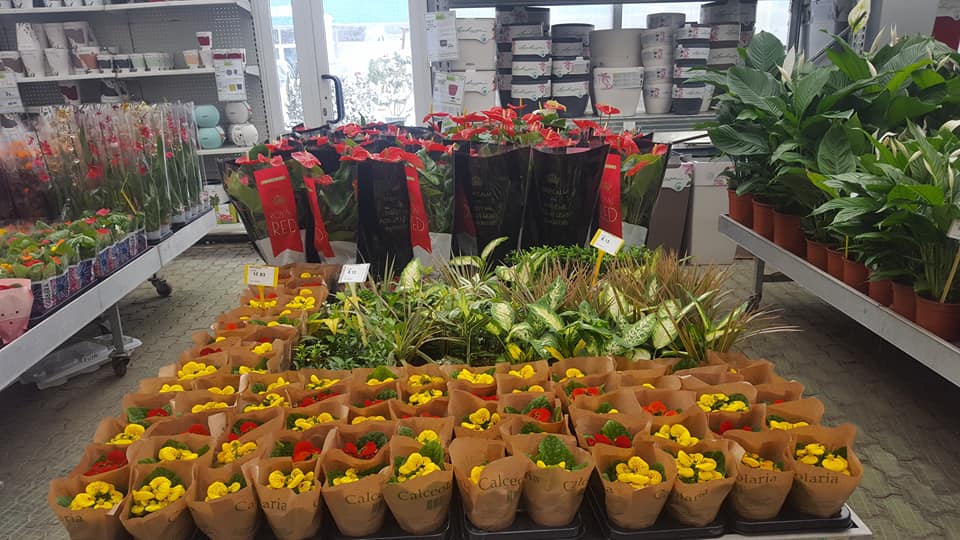




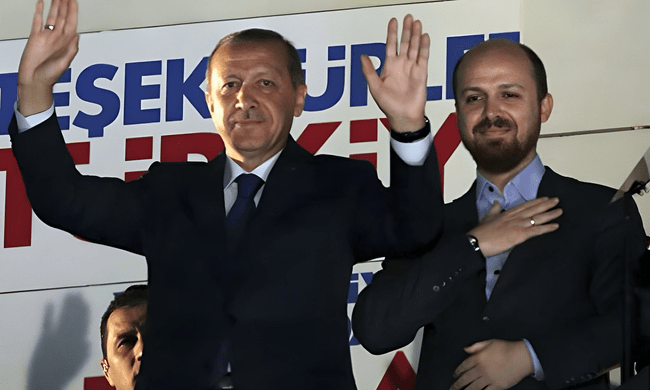



Comentează